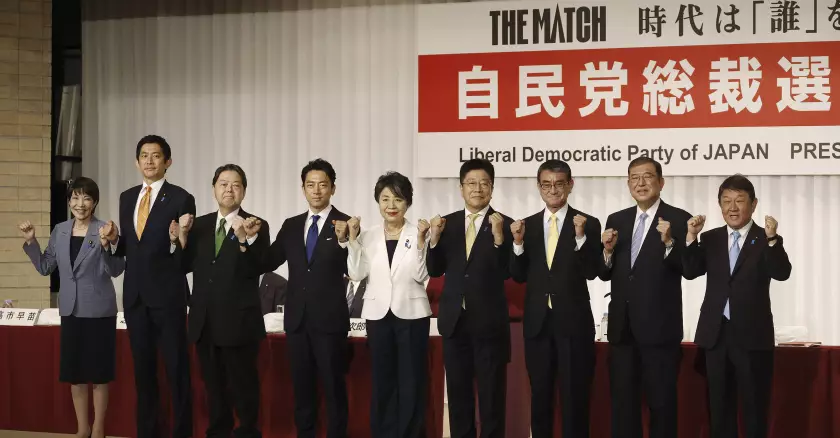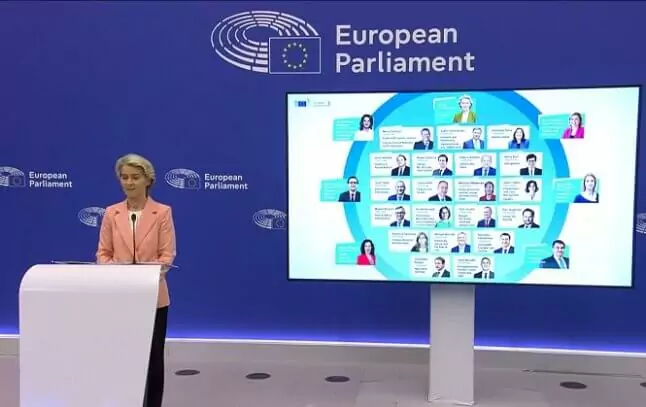Italy country update: Giorgia Meloni: Moderation by default

Despite initial concerns, Italy has enjoyed relative institutional stability since the appointment of Prime Minister Giorgia Meloni as head of a right-wing coalition government in the wake of the Fall 2022 general elections. Most of her efforts have been focusing on enhancing Italy’s international credibility, both geopolitically, such as unconditional support for Ukraine, and economically, with a strong economic alignment with the expectations of the European Commission.
Her recent decision to vote against Ursula von der Leyen as EC president, however, raises questions for the next few months, when Italy’s fragile fiscal position will increasingly come under scrutiny from Brussels and capital markets as well.
Silencing the critics and succeeding Mario Draghi: Moderation and compromise as a method for creating longevity and finding room to manoeuvre.
Giorgia Meloni succeeds Mario Draghi (13 February 2021-22 October 2022), leading a technical government based on a heterogeneous coalition bringing together a broad spectrum of the Italian political landscape – the Democratic Party (PD), Italia Viva, Forza Italia (FI), the Northern League and the 5 Star Movement (M5S). Applauded by other European leaders for his seriousness, moderation and experience, Mario Draghi had successfully promoted Italy as a recipient of European funds, organised the aftermath of the vaccine response, and was the architect of the reorganisation of energy value chains following the outbreak of war in Ukraine.
Giorgia Meloni has abandoned some of her more extreme historical proposals, including leaving the European Union, focusing instead on pursuing three objectives:
- To position herself as the only credible leader of the Italian right capable of continuing the legacy of Silvio Berlusconi.
- To safeguard the receipt of European funds under the Next Generation EU recovery plan (€191.5 billion over the period 2021-2026), which had been put under review by the European Commission and certain member states on the grounds that Italy was drifting towards the extreme right.
- To free up room to manoeuvre diplomatically as to combat illegal immigration, which has been one of the main themes of Italy’s foreign policy in recent months, whether through the announcement of the Mattei Plan for Africa or the choice of the Puglia region to host the Italian G7 summit.
The strategy to focus on these three objectives seems to have paid off so far, with Giorgia Meloni being courted even by European Commission President Ursula Von der Leyen, who had previously criticized her to deter her election in Italy, but had sought Meloni’s support for her own re-election.
A favourable balance for the Italian right, dominated by Fratelli d’Italia, but one that is fragile and subject to pressure from the left.
The center-right was victorious in the September 2022 general election by a wide margin, i.e. with 43.8% of the vote for the Chamber of Deputies and 44% for the Senate for the coalition led by Giorgia Meloni’s Fratelli d’Italia with the late Silvio Berlusconi’s Forza Italia and Matteo Salvini’s Northern League. This tripartite coalition is dominated by Giorgia Meloni’s post-fascist party, which takes over the presidency of the council, but it also has parity representation within the government. Antonio Tajani, the new leader of Forza Italia, and Matteo Salvini, became vice-president of the council for foreign affairs and infrastructure respectively.
The European Parliament elections that took place on 8 June 2024 confirmed the dominance of Fratelli d’Italia, which came first with a 28.8% share of the vote – slightly more than its 26% share in the 2022 legislative elections – and 24 MEP seats. The center left Partito Democratico (24.1%, 21 seats – up from 19% in the general election), came second, which was a remarkable comeback, while the parties in the right-wing coalition, Forza Italia (9.6%) and the Northern League (9%), performed poorly, just behind the Five Star Movement (10%), with just 8 seats each.
The results of European elections should in any case not be over-interpreted, as they are often marked by lower voter turnouts as well as favour parties that are committed to European issues. This election result is nonetheless a warning sign for the right-wing coalition, while the Italian left feels reassured by its performance, as well as by Labour’s victory in the UK and the New Popular Front’s good showing in the last French legislative elections, and was galvanized by the performance of the Italian center left at the latest EU elections as well as at several municipal elections.
After many months of courting between the EPP and von der Leyen, Meloni opted for a thumbs down. Will this move spell doom for Italy in the coming months? It is unclear whether Meloni’s decision to vote against von der Leyen will cause a rapid deterioration in the Rome-Brussels relations, and whether this will put Italy’s public accounts under strain.
For sure, this decision ends long months of speculations about Meloni possibly pivoting to the center and becoming part of the EPP-S&D-Renew core group. It also serves as a reminder that Meloni does not want to be seen as a centrist, but as a right-wing political operator, and that, when she is forced to make a choice, she sticks to her own party’s old guard.
Marc Reverdin, CEO, mr@reverdin.eu
Francesco Galietti CEO of Policy Sonar, galietti@policysonar.com
If you would like to discuss the domestic political situation further and understand what impact it will have on the business climate and macroeconomic framework, as well as on European and international policy, please do not hesitate to contact us.
We help our clients navigate political and financial dynamics, from regional to global.




